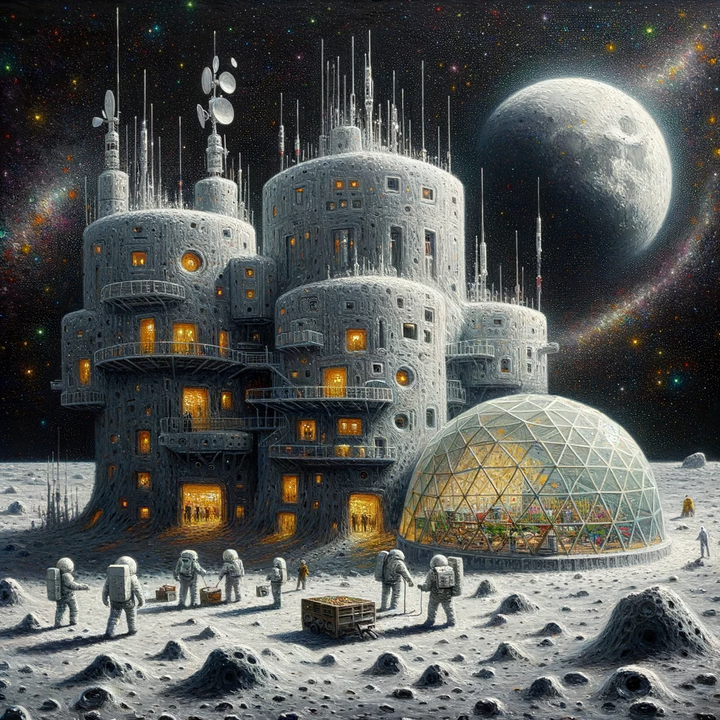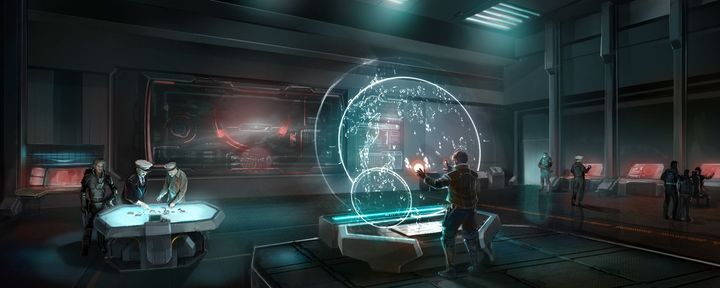O'Neilian Philosophy and Humanizing Space
Prof. Gerard O'Neil had his own philosophy and theories of societal benefit that led him to believe that 'humanizing space' is one of the best activities we could pursue to improve the human condition.
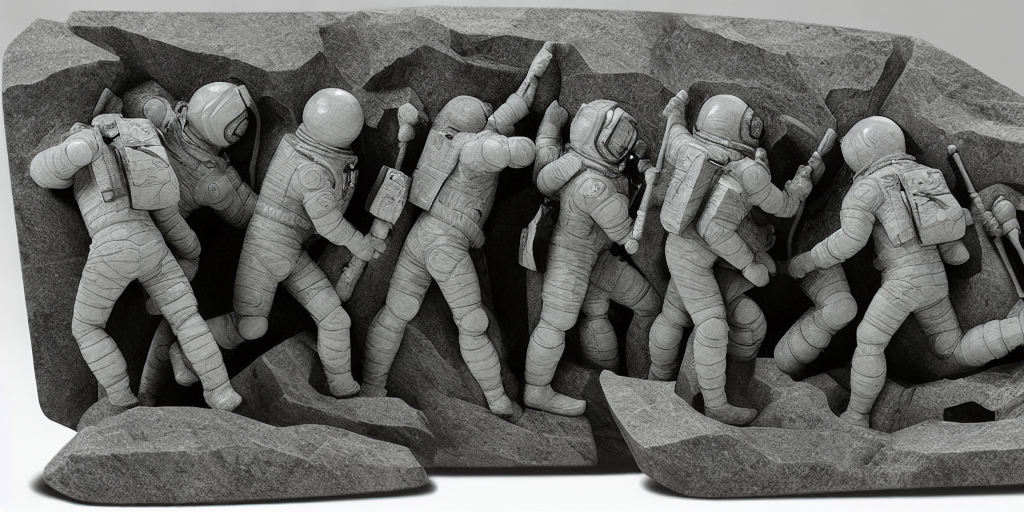
We find ourselves amidst a resurgence in another space race. Why should we go? Perhaps now is the right time to ask. Prof. Gerard O'Neil had his own philosophy and theories of societal benefit that led him to believe that 'humanizing space' is one of the best activities we could pursue to improve the human condition.
Nearly 50 years ago Gerard O'Neil articulated foundations of societal benefit, a rubric to assess proposed endeavors, and concluded that humanizing space is a logical consequence. After discussing these ideas, I articulate broad agreement with O'Neil's ideas, and discuss how Space Based Solar Power (SBSP) and the Second Space Race mean that space humanization is technically feasible and may be happening now.
Let's unpack 1) O'Neil's philosophy as it applies to space, 2) his rubrics for social benefit, and 3) why O'Neil believed that humanizing space is a worthy objective.
To space!
O'Neil's Philosophy and Space
Who was Gerard O'Neil? As a 20th century particle physicist and professor much of his life was devoted to research and education.
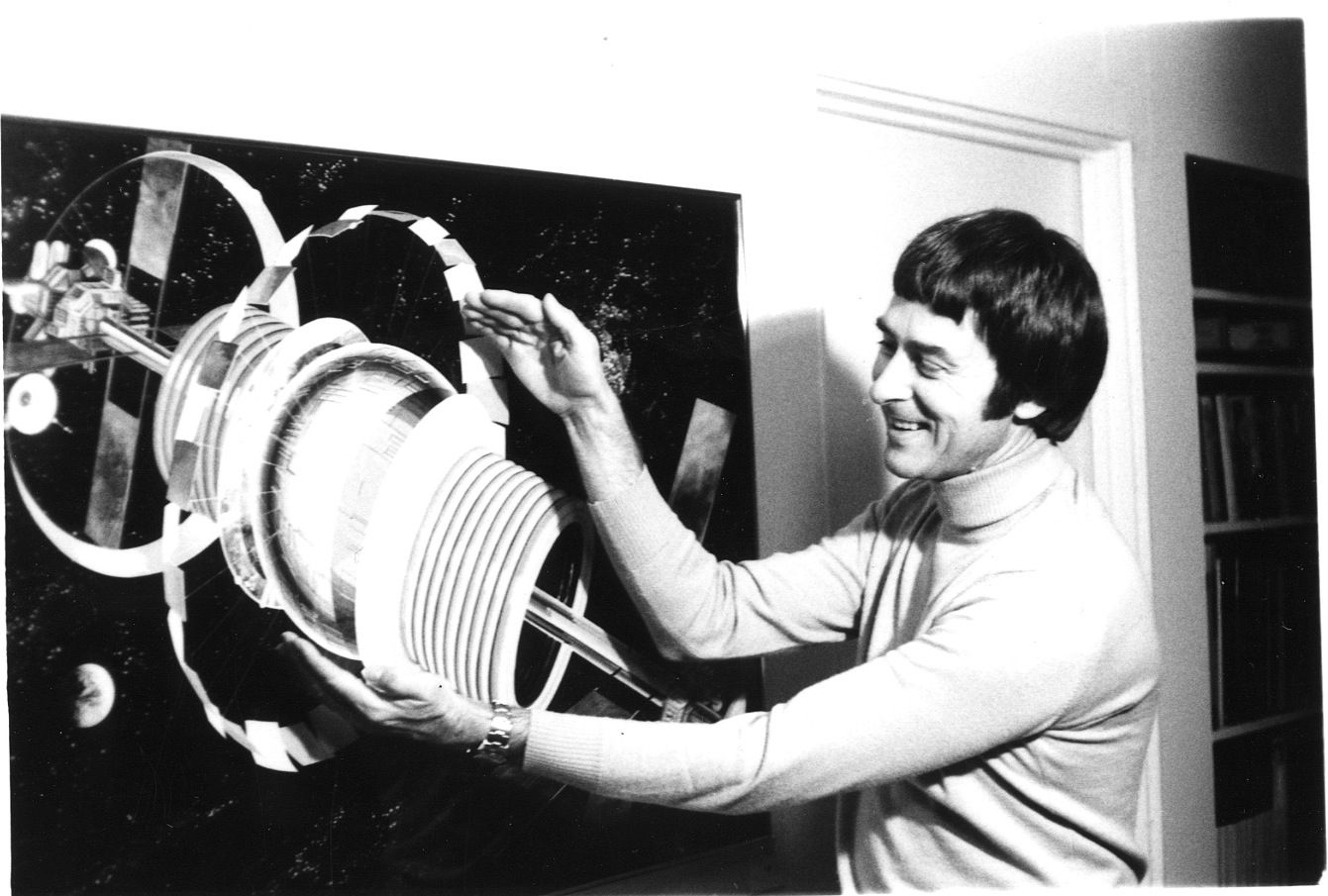
A recent documentary covers O'Neil's life and mission to 'humanize space.' I admit I've yet to watch it - I found it while researching this article. I suppose we'll see how closely my thoughts align with the filmmaker's vision.
O'Neil's Philosophy
What was his philosophy as it applies to space? Why do we still talk about it today? These questions are addressed in his 1976 book The High Frontier.
It begins with several foundational goals that, individually, improve the human condition:
”1. Ending hunger and poverty for all human beings.” (pg. 28, The High Frontier)
Straightforward - people should be neither hungry nor destitute, right?
”2. Finding high-quality living space for a world population which will double within forty years, and triple within another thirty, even if optimistic estimates of low growth rate are realized.” (pg. 28, The High Frontier)
Interestingly, world demography has proven O'Neil partially wrong on this account. The UN world demographic report) predicts broad declines across the Europe and Asia, with increases in Africa.
”3. Achieving population control without war, famine, dictatorship, or coercion.” (pg. 28, The High Frontier)
While this problem is location-dependent for the current century, overcrowding exacerbates many perennial human problems.
”4. Increasing individual freedom and the range of options available to every human being.” (pg. 29, The High Frontier)
Increased individual freedom is straightforward, and hopefully something the reader can agree with.
A fifth goal:
”Is it reasonable then to set a fifth, more parochial goal? Realizing our limitations, should we not seek a role for [the United States] that can be of benefit to humanity as a whole, and at the same time can benefit directly our own people and our own economy?” (pg. 29, The High Frontier)
Following up on this, O'Neil adds:
”I own to a private belief that wealth and leisure, shared generally by a large segment of a population, are powerful forces tending toward more democratic forms of government, but I suspect that if the human race does achieve general affluence, and with it an increase in real human freedoms, it will do so within the outward forms of many different forms of government, and with many of the old polemic catchphrases still in regular use.” (pg. 29, The High Frontier)
O'Neil may be more right than he could have known. Despite a large swing towards democracy during globalization (and increased individual wealth), the pendulum is moving away from democracy at the present.
What does space have to do with it?
So, in short, broadly distributed freedom, wealth (energy), and leisure are common human goods that O'Neil supports. How does space fit in?
"[O]ur hopes for improvement of the standard of living in our own country, and for the spread of wealth to underdeveloped nations, depend on our finding a cheap, inexhaustible, universally available energy source." (pg. 23, The High Frontier)
A Inexhaustible, universally available energy source. It sounds like green energy...
But green energy has all sorts of problems, right? Solar and wind-power potential is unevenly distributed across the globe. Even then, you have to get that power to a city to be used.
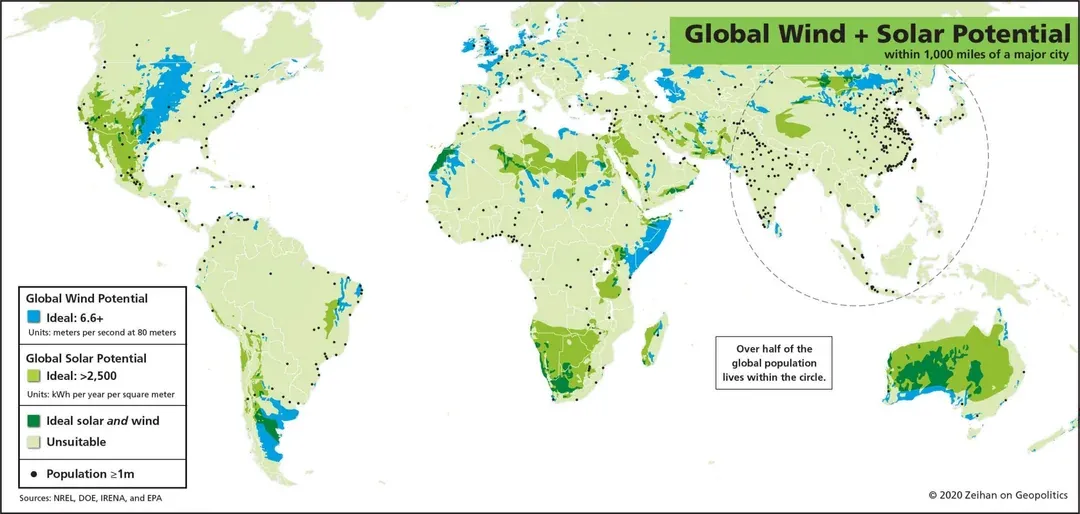
So maybe terrestrial green energy doesn't meet the 'universally available' criterion. What does?
You guessed it. Space Based Solar Power (SBSP). If solar panels and power beaming capabilities are placed in orbit, they are always in sunlight. No atmosphere to reduce power. No weather to block the sun. No pesky nights to worry about.
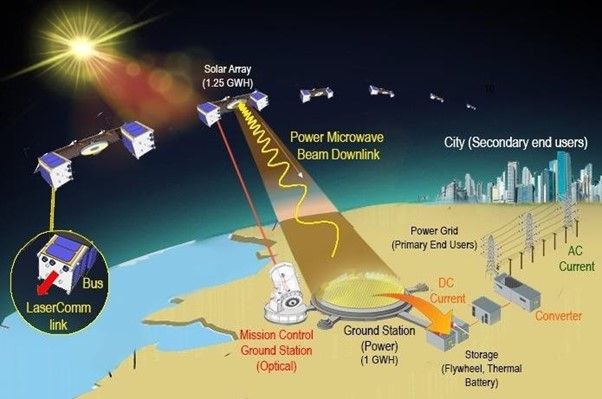
Many studies (ESA, US DoE, others) have shown that the technical case for SBSP has merit. The United States, China, and even universities are currently in the process of designing, launching, and demonstrating SBSP technology; this is not science fiction.
Even in the 70's, space based solar power was technically viable. This was one of O'Neil's foundational motivations for sending humans to space for permanent habitation.
He called it humanizing space. Given the baggage that the term 'colonizing' has, I like the term humanizing. In addition to the straightforward interpretation of adding humans to space it also has flavors of human rights and well being.
So, humanizing space.
What goals would humanizing space include?
”[T]he long-term goals we should set, relevant to space habitation, should only be those with which nearly every rational human being, possessed of goodwill toward others, could agree.” (pg. 28, The High Frontier)
Qualitatively this is a great basis for space humanization goals. The devil is always in the details.
Pivoting to a contemporary of Gerard O'Neil (and other professor), Carl Sagan has much to say on the topic of humanizing space.
"In that case, on behalf of Earthlife, I urge that, with full knowledge of our limitations, we vastly increase our knowledge of the Solar System and then begin to settle other worlds." (pg. 312, Pale Blue Dot)
Not only explore. A decade after O'Neil wrote The High Frontier, Sagan agreed with O'Neil's premise and conclusions in his popular book Pale Blue Dot.
"But as for a long-term goal and a sacred project, there is one before us. On it the very survival of our species depends. If we have been locked and bolted into a prison of the self, here is an escape hatch—something worthy, something vastly larger than ourselves, a crucial act on behalf of humanity. Peopling other worlds unifies nations and ethnic groups, binds the generations, and requires us to be both smart and wise. It liberates our nature and, in part, returns us to our beginnings. Even now, this new telos is within our grasp." (pg. 333, Pale Blue Dot)
How O'Neil Assesses Societal Benefit
Ok, so humanizing space is, broadly speaking, an objective that several scientists fond of public service have endorsed.
Remember the devil and the details? O'Neil gave thought to this, and developed a set of four rubrics to assess whether potential technological or programmatic endeavors (space-based or not) are worth pursuit.
"1. A proposal to improve the human condition makes sense only if, in the long term, it has the potential to give all people, whatever their place of birth, access to the energy and materials needed for their progress." (pg. 19, The High Frontier)
"2. A technical "improvement" is more likely to be beneficial if it reduces rather than increases the concentration of power and control." (pg. 19, The High Frontier)
This seems to be an argument for freedom, to the benefit of democratic norms and detriment of autocratic governments.
"3. Improvements are of value if they tend to reduce the scale of cities, industries, and economic systems to small size, so that bureaucracies become less important and direct human contact becomes more easy and effective." (pg. 19, The High Frontier)
While it has Libertarian overtones, I agree that the objective is worthwhile - increasing the importance and effectiveness of human contact. The book [Dark Skies] has more to say on this topic. The methodology should be debated by society.
"4. A worthwhile line of technical development must have a useful lifetime 'without running into absurdities' of at least several hundred years." (pg. 19, The High Frontier)
By this, O'Neil is talking about exponential growth models (e.g., GDP or population growth) and their tendency to produce unbounded (and unrealistic) results over sufficient periods of time. I agree with this suggestion.
Humanization of Space
We've introduced what O'Neil considered benefits to humanity, how he would assess social benefits of specific proposals, and suggested that humanization of space might pass these tests.
With minor foot stoping, I'll emphasize that both O'Neil and Sagan agreed on at least the energy (wealth) proposition:
”If we continue to care about the environment in which we live, that energy source should be pollution-free and should be obtainable without stripping Earth.” (pg. 23, The High Frontier)
"The first step in engineering the Solar System is to guarantee the habitability of the Earth." (pg. 283, Pale Blue Dot)
Can Earth habitability and humanizing space be aligned? Yes - in fact it dovetails with SBSP energy production and distribution nicely.
O'Neil goes on to discuss how, even within the Inner Solar System, sufficient natural resources and space exist for exponential economic and population growth for centuries or millennia. That is a long time.
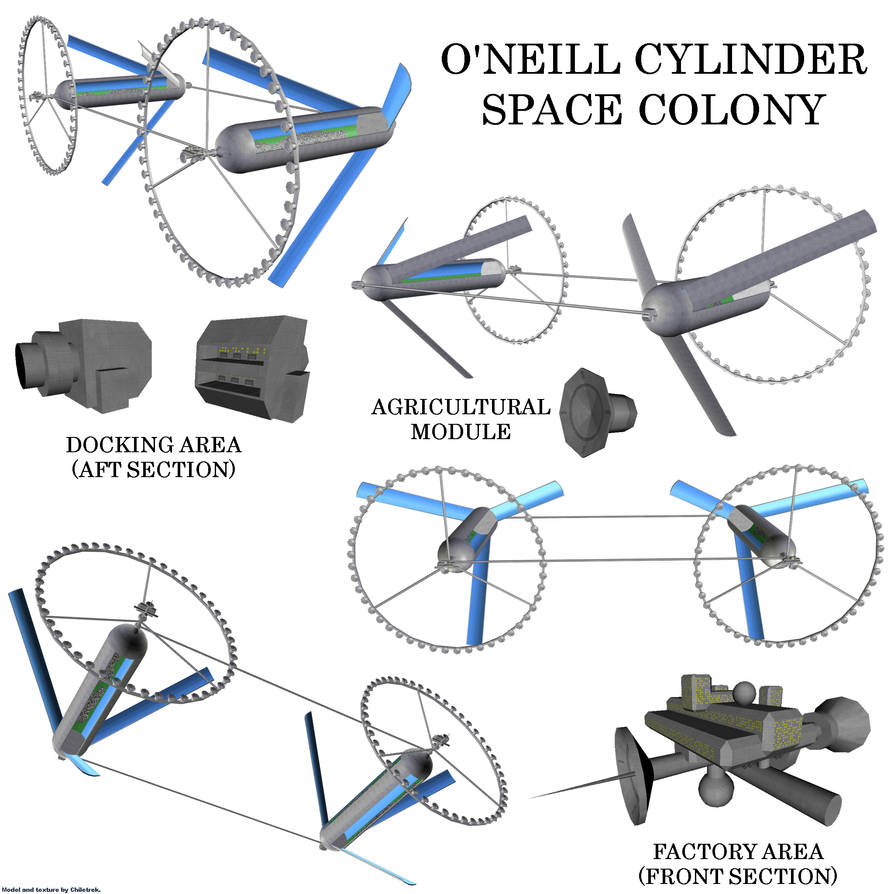
Indeed, if spacious, pleasant habitats can be built; if functionally infinite energy can be produced; if space agriculture is feasible; if dirty and polluting industries can be pursued off-planet; if the Earth can be tended as a garden, is humanizing space a worthy endeavor?
I think it is. But can we do it? Do we have the means?
30 years ago, Carl Sagan wrote:
"We’re on the cusp of the technology, near the midpoint between impossible and routine." (pg. 284, The High Frontier)
He went on further to discuss social benefits of permanent space habitation.
"Instead, I think that, after some debugging, the settlement of the Solar System presages an open-ended era of dazzling advances in science and technology; cultural flowering; and wide-ranging experiments, up there in the sky, in government and social organization. In more than one respect, exploring the Solar System and homesteading other worlds constitutes the beginning, much more than the end, of history." (pg. 318, Pale Blue Dot)
and
"The most soaring achievements of mankind in the arts, music and literature could never have occurred without a certain amount of leisure and wealth; we should not be ashamed to search for ways in which all of humankind can enjoy that wealth." (pg. 10, The High Frontier)
So... when will humanizing space start?
"The 'when' is not science but a complicated, unpredictable interplay of current events, politics, individual personalities, technology and chance." (pg. 16, The High Frontier)
That's for sure. What do O'Neil's thoughts have to do with the second space race? That, perhaps, is a story for another article.
There are obvious geopolitical frictions involved in humanizing space. In the spirit of human benefit that O'Neil evangelized, I'll leave you with an affirming quote from Carl Sagan:
"For all our failings, despite our limitations and fallibilities, we humans are capable of greatness." (pg. 332, Pale Blue Dot)
We can do it. I hope it has already begun.
Summary
In this essay we discussed:
- O'Neil's Concepts of Societal Benefit. Namely, that all of humanity should possess increased freedom, wealth (energy), and food security.
- O'Neil's Rubric For Evaluating Societal Benefit of Proposed Endeavors. O'Neil felt that increased accesses to energy & materials, distributed political power, meaningful human contact, and basic compatibility with real-world resource and space limits must be considered.
- Humanizing Space Is a Solution. We observed that humanizing space is a plausible solution, according to O'Neil's rubric for societal benefit. Carl Sagan was in broad agreement. We have the technical means; the political will to pursue space humanization is the only question.
